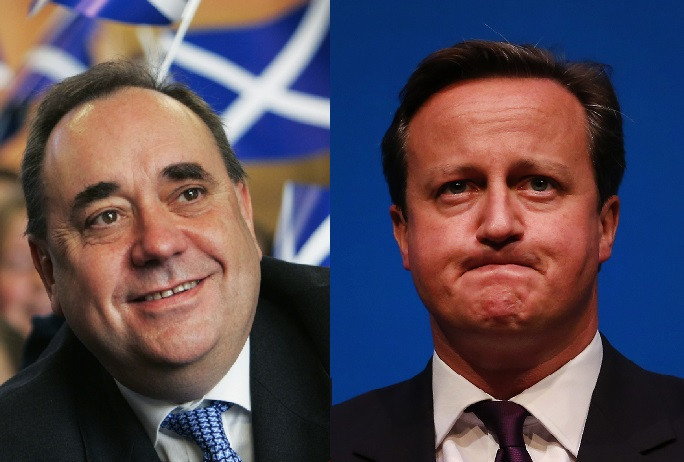Scotland Independence Results: UK Markets Must Not Get Cocky Because Big Political Challenges Lie Ahead

That big hiss you could hear this morning as it gusted through the streets of London wasn't wind; it was an almighty exhale from a relieved City.
For the months of uncertainty that hung like a gloomy cloud over their heads has now dissolved after a clear victory for 'No' in the Scottish independence referendum – 55% against 45% for yes.
Before markets had even opened in the UK, sterling strengthened overnight as the results slowly dripped in to unveil the inevitable result. And when the stock markets did begin trading, shares in Scottish firms – RBS, Standard Life and SSE, to name but three – surged.
The answer to several fundamental and troubling economic questions raised by independence was simple and satisfying: everything stays the same. Scotland would remain in the UK, the EU, and keep the pound and the Bank of England.
Those contingency plans being drawn up, to redomicile in England and shift business out of Scotland, can be fed into the paper shredder's hungry jaws. Postponed investment and job creation can now go ahead as previously planned.
But the City should be careful before relief turns to complacency or cockiness. A significant chunk of the Scottish population – over 1.6 million people – voted for independence, a mass of support that has gathered significantly over time. Many of them are young. And they aren't going to become unionists overnight.
In order to convince the majority of Scottish voters to stay within the UK, Scotland has been promised by Westminster so-called "devo max", meaning it will be given the most power possible short of total independence. This plan, scrambled together in a last-minute panic by David Cameron, Ed Miliband and Nick Clegg, may yet crumble into dust.
A number of English backbenchers in Westminster are already grumbling about giving Scotland more powers of self-governance while Scottish MPs can vote on issues relating only to England. And they're not happy with the funding settlement given Scots receive more than £1,000 extra per head in public spending than the rest of the UK.
It opens up the 'English question' and lays the foundations for years of squabbling over constitutional issues. Should England have a separate parliament? Should Scottish MPs be allowed to vote on English matters? Will local councils get more devolved powers?
This all threatens to stall the placatory "devo max" promise and fuel anti-UK sentiment if some No voters feel they've been hoodwinked by Westminster before the referendum, then stitched up after it.
So markets can celebrate in the short term and start putting the value back into Scotland-exposed stocks that had been trimmed away in the months leading up to the independence referendum.
But they should also be keeping a very close eye on any English backbench discontent in Westminster that could disrupt the devolution of more power to Scotland.
If the various political issues aren't resolved quickly, with Scotland receiving its promised powers, the prospect of yet another independence referendum – this time based on a platform of broken Westminster pledges – becomes very real.
Alex Salmond, the Scottish National Party leader and frontman of the independence movement which got so close to victory, may go away. But the question of independence probably won't.
© Copyright IBTimes 2025. All rights reserved.




















